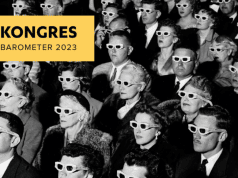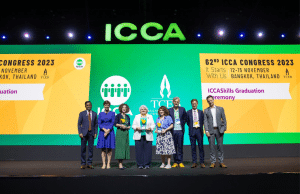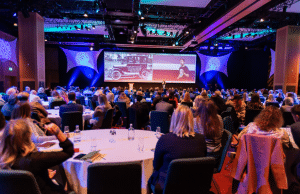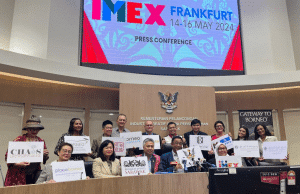I believe the role of local/regional and national convention bureaus is different in at least some aspects. Of course, it depends on the development of the market and the understanding of the meaning of the meetings industry. The activity of the convention bureau is influenced by the way it’s financed. More developed countries have an established public financing of the bureau, which enables uninterrupted functioning with business cooperation in marketing projects. In emerging countries the role of convention bureaus is even more dissimilar to those at established destinations and bureaus, known more in the Western European countries.
It is interesting to note the basic role of a convention bureau is the same everywhere. The first convention bureau was established in 1896 in Detroit, USA. Even back then they were aware of its role – to simply bring as many events into their city as possible.
Emerging countries face problems mostly because the meetings industry doesn’t hold a proper place in comparison to leisure tourism. The number of guests generated by the meetings industry will hardly reach a number of classic tourists – this is one of the reasons this product doesn’t get enough attention. Another reason is that most stakeholders don’t understand the role of the meetings industry for a city/region/country. When talking about stakeholders I’m referring to representatives of city/regional/national authorities. By not understanding the meetings industry we overlook significantly larger income of meetings participants who create much larger multiplicative effects in comparison with leisure tourists. Beside high direct income the meetings industry also creates very high indirect income. This was recently confirmed by an American analysis of their meetings industry market, which ranked the meetings industry higher than automotive industry. If we have a look at established meetings destinations we can tell most convention bureaus function independently, if not legally at least in light of marketing and functioning. Established meetings destination are aware the meetings industry has practically nothing to do with leisure tourism, not counting the fact that meetings participants also stay in hotels, use airplanes, buses and taxies for transfer and restaurants for eating. Their aim is not the same. We mustn’t forget congress participants are here on work assignment.
What is the purpose of the participant’s visit to the destination? Meetings organizers are well aware of this. We have to realize the international market is ruthless for suppliers as well as clients. Buyers of congress services have to clearly demonstrate their added value to their client, the end buyer. The role of the congress bureau is very important if not decisive in encouraging the buyer to include your destination in their portfolio and in their offer to their clients.
The role of congress bureaus in a crisis is even more important than during the time of “fat cows”. Everyone in the chain is looking to demonstrate their added value, or they are gone tomorrow. Free services provided by the convention bureau are not enough for the client to use it, its added value lies elsewhere. A convention bureau works as a voice of the destination and offers professional, quality and up to date services tailor made for the interested client for a specific event. The convention bureau must also be strongly active in the area of international marketing and personalized long term relations with potential and existing clients as well as the international environment. The convention bureau has to look for synergy with suppliers at destination level and at the same time create synergies at destination level and wider, even across borders. There are no limits. We know a few good practice examples. I personally believe the role of a convention bureau is to offer constant professional training for their members, namely suppliers at destination level, to bring new knowledge and international experiences to the destination and at the same time encourage the participation of actors in international trainings and getting to know foreign destinations and established practices.
We have to be aware that we are selling services to mostly the international, global market. We have to master international trends and know what is “in” and what isn’t. Sustainable meetings industry is a mystery to many and here the role of convention bureaus is also very important. At established meetings destinations and those entirely financed from public means there will be pressure on convention bureaus to cut their costs or to legitimize their role for the city/region/country, while emerging countries where convention bureaus aren’t financed from state; they will have the opportunity to establish their role much more than before the crisis.
Miha Kovačič













